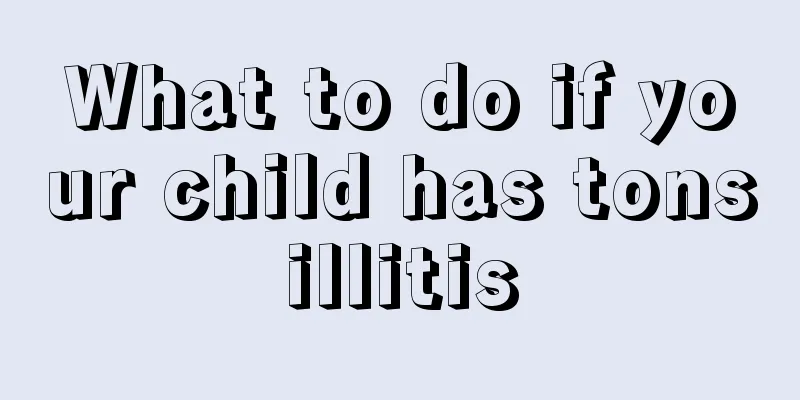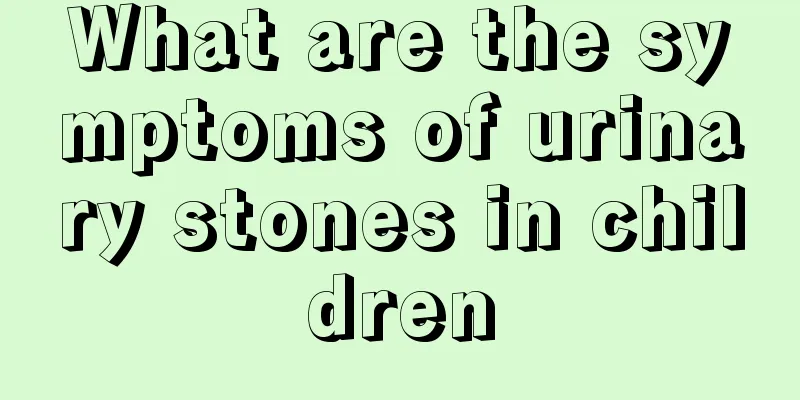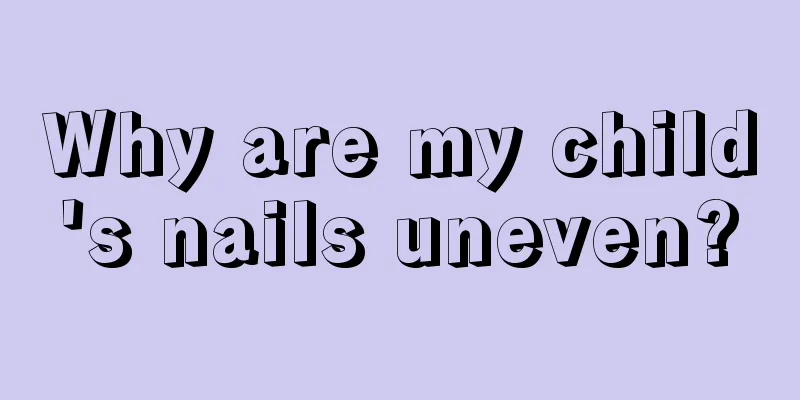What to do if your child has tonsillitis

|
Tonsillitis is most likely to occur in children. This may be because children's resistance and immune system are not as fully developed as those of adults. Therefore, children's resistance is much worse than that of adults. Therefore, children are prone to illness. Parents should pay attention to their children's daily life or when they are sick to avoid their children getting sick or prevent the disease from getting worse. So what should be done when children have tonsillitis? The treatment of acute tonsillitis is mainly to control infection. Tonsillitis is mostly caused by bacterial infection, especially purulent tonsillitis, which is caused by purulent bacteria, so antibiotics must be used. Enlarged tonsils caused by chronic tonsillitis can cause breathing difficulties, especially during sleep, because the tongue relaxes and falls back, causing snoring. Over time, chronic hypoxia can affect growth and development, and chronic hypoxia can also affect the intellectual development of children. Home Care Essentials 1. Tonsils are generally largest between the ages of 3 and 10 and gradually shrink after the age of 10. Therefore, tonsillitis in childhood is the focus of prevention and treatment. 2. Strengthen exercise, especially in winter, and participate in more outdoor activities to enhance the body's ability to adapt to the cold and reduce the chance of tonsillitis. 3. Keep your mouth clean and rinse your mouth after eating. 4. Acute tonsillitis is mostly caused by bacterial infection, especially pyogenic bacteria such as Streptococcus and Staphylococcus aureus. Therefore, antibiotics must be used, among which penicillin is the most effective. Oral or intravenous injection can be selected according to the severity of the inflammation. 5. Chronic tonsillitis or enlarged tonsils can be treated with tonsillectomy. Rapid tonsillectomy is now commonly used. During the operation, surface anesthetic is sprayed in the patient's mouth. After a while, the patient's pharyngeal sensation will become numb. Then let the patient lie on the bed, and the doctor uses an instrument called a squeezer to remove all the tonsils at the moment the child opens his mouth. The operation was very quick and was completed before the patient felt any pain. The patient was conscious the whole time, so he could eat cold food immediately to promote vasoconstriction and prevent postoperative bleeding. The operation does not require hospitalization, and you can go home after 1 to 2 hours of outpatient observation. 6. Eat semi-liquid food, such as noodles and egg cakes, within 1 to 2 weeks after the operation. 7. Surgical removal is not the end of the problem, as pharyngitis may occur again. So the ideal approach is to avoid removal as much as possible. If your child suffers from tonsillitis, we can follow the above methods to prevent it while paying attention to many related matters, so that your child can recover from the illness as soon as possible and avoid many sequelae. If their children can recover sooner, it will make them more comfortable and parents can feel more at ease. |
<<: Methods of testing children's mental retardation
>>: The reason why children's face turns yellow
Recommend
Treatment of torticollis in children
Torticollis in children takes a longer time to be...
What should I do if my 3-year-old baby catches a cold and vomits?
When babies are young, their physical constitutio...
The baby only has two teeth at ten months old
Newborns have no teeth when they are just born. W...
What should I do if my baby has strabismus in his left eye?
Strabismus is also an eye disease, and strabismus...
What to do if your child has a fever
It is quite common for young children to have fev...
What should students eat to nourish their brains and make their children smarter?
The pressure faced by students is getting greater...
Is it normal for newborns to have milk clots?
Perhaps many parents will find that their babies ...
Can children take vitamin C effervescent tablets?
Generally speaking, adults like to drink vitamin ...
Is it normal for a child to be sleepy when having a fever?
Children have relatively poor resistance, so it i...
How effective is the Chinese medicine patch in treating baby’s cough?
Everyone coughs. Coughing is a defensive movement...
Is it good for babies to sleep frequently?
Many mothers have found that newborn babies alway...
What are the treatments for fever in children?
What are the treatments for fever in children? Th...
Can my baby drink milk if I have a fever?
Nowadays, many mothers will try their best to fee...
What medicine is effective for children's bedwetting
Bedwetting in children is a common problem in lif...
What to do if your child has a fever of 37.4
For adults, having a cold and fever is a very com...









